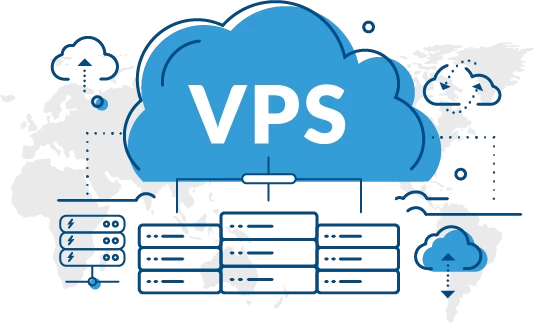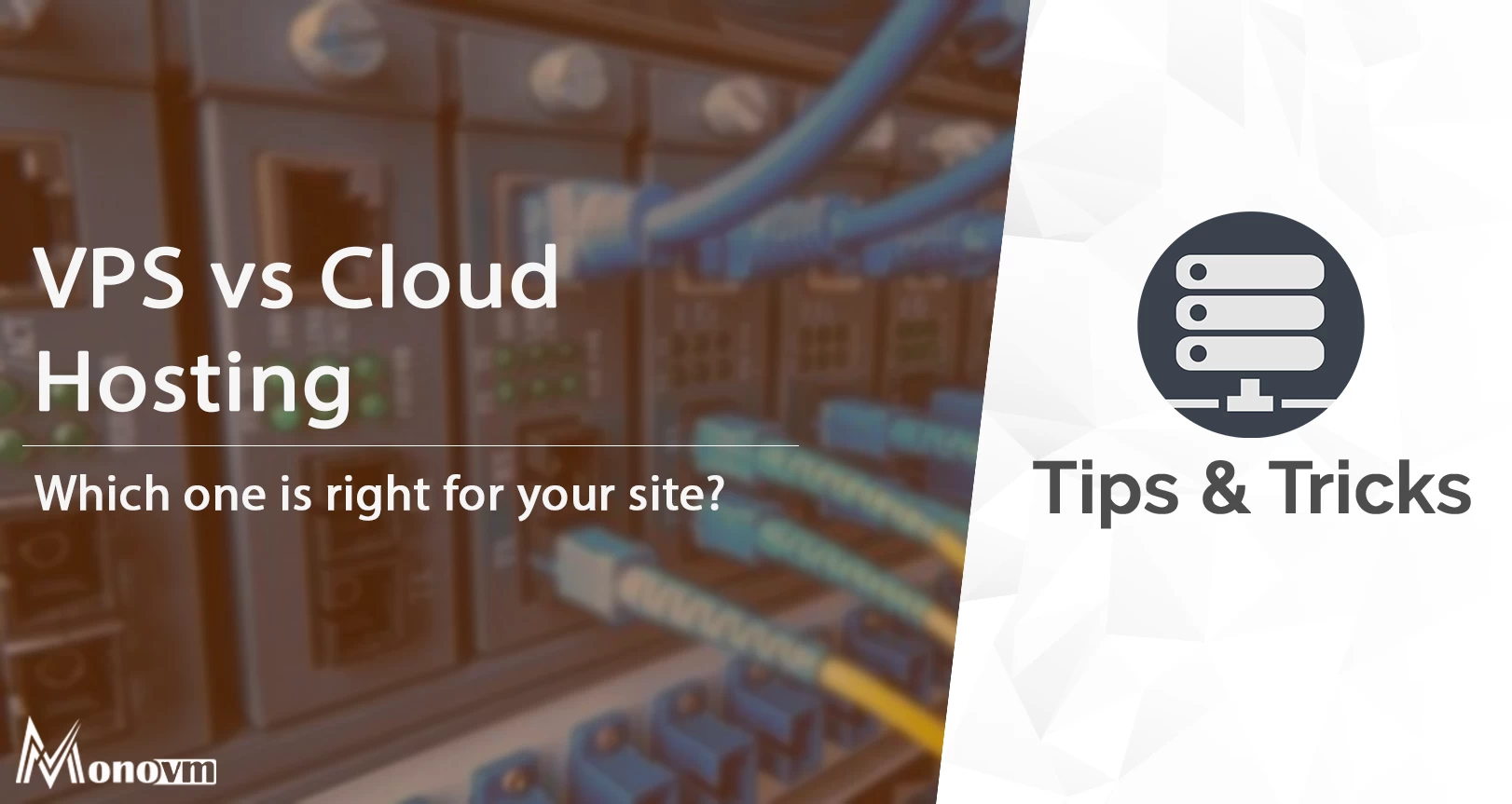List of content you will read in this article:
Cloud Servers vs VPS - What are they and what are the differences?
Are you trying to set up your own website? For a website to exist on the internet and be available for visitors to browse on it, you need a hosting provider.
This hosting service provider will run your website on a server computer that processes all the requests sent its way and sends back data to virtually anyone who wants to visit your webpage. However, not every server is the same.
There are many different kinds, but in the past few years, Virtual Private Server hosting and cloud server hosting have become prevalent technologies and widely used by web developers to keep their pages online. What are these two kinds of hosting?
In this article, we’ll explore what a cloud server is, what a virtual private server is, and compare the two different kinds of hosting to find out which one is the ideal choice for you. We hope this article helps you!
What is a VPS and how does it work?

If you want to set up a website or run web applications online, you could buy your own server, build it, configure it, and keep it maintained manually. However, for many people and businesses, this isn’t practical. It can be very costly and not sensible in the long term.
You will also have to hire employees to keep it running and operating at optimum conditions. Furthermore, your server may not even have the resources and capabilities to run a large site or handle many HTTP requests!
Okay, so then you decide to go with the conventional hosting from a web hosting provider. This is a great option, but even then, it probably won’t provide you with all the power you need to run your website.
Furthermore, you will be sharing it with many other websites - often, hundreds of websites are handled by a single server. This means that if any of those websites start demanding more resources, you suffer as a result. You also do not have your own unique Internet Protocol address that you can use to access your website, and you cannot configure the server exactly how you like.
So, what do you do? Fortunately, there is a solution, and it is called a Virtual Private Server. With a Virtual Private Server, or VPS, you do not have to build and configure your own massive server machine and pay lots of money to have it consistently maintained. Furthermore, it isn’t like typical hosting where you share the server and the server computer’s identity with many other websites.
Instead, it’s basically your own “virtual” server on a massive server computer where you have virtually unlimited bandwidth and the ability to configure it in whichever ways you like!
You have your own unique slot with dedicated resources and the freedom to control that part of the server computer however you like. Therefore, you are not bunched up with hundreds of other websites, and you are not restricted in the ways that conventional hosting limits you!
This makes it extremely beneficial for businesses who want to run large websites or simulate intensive web applications that demand a lot of computing resources - or require the server to be modified in some way - to get brilliant hosting.
What is a cloud server?

Cloud servers are part of cloud computing. They’re beneficial for both ordinary people and companies because they stop you from having to run your own server or use a hosting provider’s server to run your software or store your files.
If there are any breaches, viruses, bugs, or problems with the server, they are typically dealt with very quickly by Google or whoever is providing the cloud servers. Compare that to running your technology on your server or one you are sharing with others, and it can be a lot more complicated, time consuming, and even expensive for you.
For these reasons, cloud technology is becoming increasingly popular among businesses, who can manage projects, take payments, hold their files and keep their papers online in a safe location that is accessible from everywhere with extremely minimal problems or interference.
Cloud servers are versatile, flexible, and scalable, making them great for a vast range of applications. Whereas with a typical web server, if it crashes or gets corrupted, you could lose all your work and files, when you keep your gear on a cloud server, however, it is being saved throughout an extensive network of different computers and servers. This adds multiple layers of safety, reliability, and reinforcement, and it is why we call it a “cloud” server rather than just a typical server.
It is the same way that many email or communications services work. Your communications are kept secure and encrypted across a vast network of secured computers, so the service provider has hugely increased uptime, and problems are dealt with much faster.
Cloud servers have even more benefits for processing and storage, too. With a single server, you’re very limited by the computing resources that are available at any given time. However, when you use the cloud, there is a massive network of computers that can provide resources. When one server fails, is exhausted or all occupied, the connection simply moves to another server or group of servers and uses resources from those instead!
This makes cloud computing very affordable, effective, and safe for both individuals and corporations. The development of cloud service provision and software as a service has made this technology much more widely available in recent years.
So, which kind of web hosting do you need? It really depends. Cloud computing is super simple to use but also has excellent freedoms. Problems are dealt with very fast on average, and you can move between various servers if your main one(s) goes down. This makes it great for reliability.
However, if you want massive resources and the freedom to customize, modify, and configure your server vastly, then a Virtual Private Server is definitely the option for you.
Final Words
In this article, we talked about web hosting and modern technologies for getting your webpages on the available internet. We explained what a Virtual Private Server, or VPS, is and how it works.
We also explained what a cloud server is and how it works and then compared the two different kinds of hosting types to see their benefits and drawbacks. We then gave some advice on which type of web hosting you might need - virtual private server or cloud server! We hope this article helped you, and thanks for reading.
